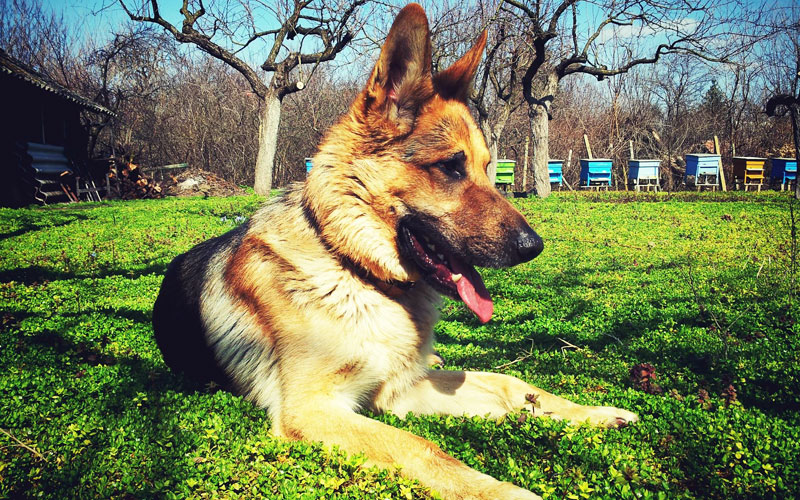
Category |
Details |
Origin |
Germany |
Size |
Large |
Weight |
50-88 pounds (22-40 kg) |
Height |
21-25 inches (55-65 cm) |
Lifespan |
9-13 years |
Coat |
Medium length, double coat (dense undercoat and straight outer coat) |
Colors |
Black and tan, black and red, black and silver, sable |
Temperament |
Intelligent, loyal, courageous, and confident |
Nutrition |
A balanced diet suitable for large breeds, high-quality dog food, portion control |
Exercise Needs |
High (daily vigorous exercise, enjoys mental and physical activities) |
Grooming Needs |
Moderate to high (regular brushing, occasional bathing) |
Training |
Highly trainable, responds well to consistent and firm positive reinforcement |
Good with Children |
Yes, generally good with children. Supervision recommended |
Good with Pets |
It can be good with other pets if socialized early |
Health Concerns |
Hip dysplasia, elbow dysplasia, degenerative myelopathy, bloat, allergies |
Living Environment |
Suitable for houses with yards, needs space to roam and exercise |
AKC Group |
Herding |
Original Purpose |
Herding, guarding, and working |
Socialization |
Early socialization is important for developing good behavior |
Barking Level |
Moderate, may bark to alert |
Independence |
Moderately independent, enjoys human companionship |
Playfulness |
High, enjoys interactive play and physical activities |
Sensitivity Level |
Moderate, responds well to consistent handling |
Weather Tolerance |
Well-suited to various climates but may need protection in extreme heat or cold |
Millions of people worldwide have fallen in love with the German Shepherd because of its intelligence and beauty. Prized for their steadfast devotion, remarkable intelligence, and beautiful looks, these canines have justified their status as one of the best-known wise breeds.
German Shepherds typically weigh between 22 and 40 kg and measure 55 and 65 cm long. Their usual lifespan is between 9 and 13 years. This detailed article explores the background, traits, maintenance needs, and much more.
Origin
The late 19th century saw the emergence of the German Shepherd breed in Germany. The breed originated to produce an intelligent, robust, and adaptable herding dog, and Captain Max von Stephanitz is recognized as the breed’s founder.
Although initially developed for herding, their extraordinary abilities soon led to their use in various capacities, such as guiding dog work, police and military work, and search and rescue missions.
Personality

German Shepherds are well known for possessing a unique combination of outstanding physical attributes and endearing character qualities. Their robust and confident presence radiates from their noble attitude, straight ears, and vigilant demeanor. German Shepherds are renowned for their steadfast devotion, intelligence, adaptability, and striking beauty.
They develop close relationships with their families and are kind, loving, and passionately protective of them. Because of their sharp intellect, they are very trainable; they do well in obedience and other big dog sports.
Nutrition
The German Shepherd requires a balanced diet suitable for large breeds. High-quality dog food rich in protein and essential nutrients is crucial for maintaining their health and energy levels. Portion control is important to prevent obesity, which can exacerbate joint and heart issues. Fresh water should always be available. Consistent feeding schedules help ensure overall well-being. Consulting a vet for specific dietary needs can help tailor their diet to their individual health requirements.
Health Issues
German Shepherds are prone to several health issues, including hip and elbow dysplasia, degenerative myelopathy, bloat, and allergies. Regular veterinary check-ups are essential for early detection and management of these conditions. Maintaining a healthy weight through proper diet and regular exercise can help prevent some of these health issues. Monitoring for signs of discomfort or illness and providing appropriate care is crucial for their long-term health.
Pros and Cons of German Shepherd Dog
Pros | Cons |
Flexibility: These dogs demonstrate flexibility and adaptability by excelling in various activities, including therapeutic work, assistance jobs, and obedience and agility contests. | Strong Prey Drive: German Shepherds may have a strong desire to hunt and eat small animals, which may worry owners of other pets in the home. |
Protective Instincts: German Shepherds are superb guardians of their homes and loved ones, thanks to their innate guarding instincts, which provide a sense of security and peace of mind. | Aloofness with Strangers: German Shepherds need to be socialized correctly to guarantee that they behave well in various settings, even if they are devoted and protective of their family. |
Work Ethic: German Shepherds are renowned for having a solid work ethic and determination. | Health Concerns: German Shepherds, like other breeds, are susceptible to several conditions, including bloat, elbow dysplasia, and hip dysplasia. |
How To Take Care
In order to properly care for a German Shepherd, its physical, mental, and emotional requirements must be met. To maintain this well-being, consistent physical activities, such as play sessions, running, or brisk walks, are important.
In addition, keeping their minds occupied with puzzle games, interactive toys, and obedience training keeps them from getting bored and promotes cognitive growth. Regular grooming is essential for their general health and well-being.
Wrapping Up
The German Shepherd is proof of the lasting relationship between people and dogs. They are devoted working dogs, devoted family members, and devoted friends. When given the proper attention, socialization, and training, German Shepherds continue to have a lasting impact on people lucky enough to spend time with them.







